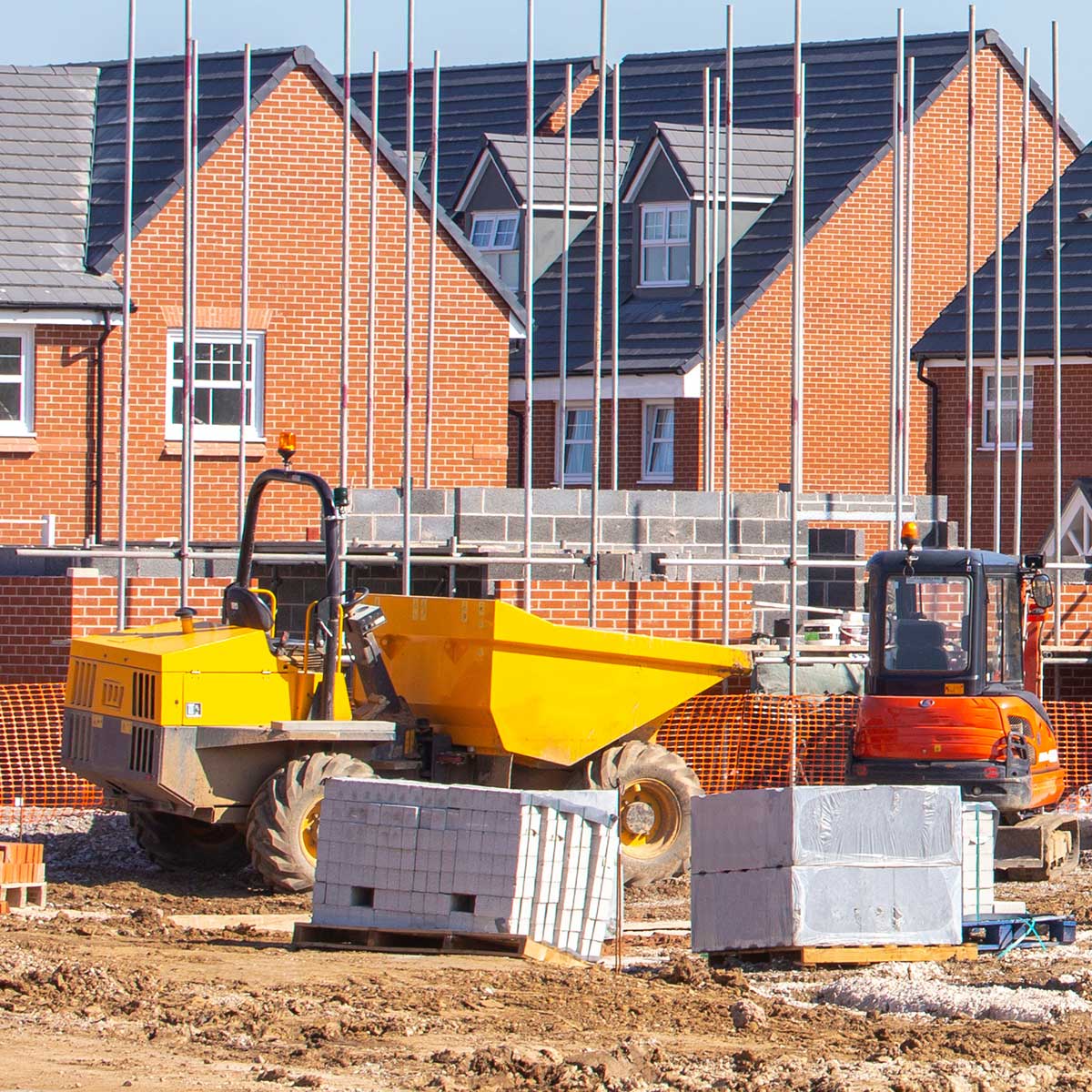Construction plant theft is on the rise
Plant and machinery theft is on the increase, with current figures at an all-time high.

The facts
It’s not just the cost-of-living crisis that has created this situation. Other factors, such as Brexit, the pandemic, the war in Ukraine and extreme weather events have all contributed to supply chain issues, delays in projects, increases in the cost of materials and equipment, lax security and higher residual values for secondhand items - creating a perfect storm in which theft is an easy option offering easy profits. It’s known that highly organised gangs of criminals continue to target construction sites, seeking high-value machinery and equipment to be sold on a booming black market.
Inadequate security is often a primary factor, along with the high resale value of materials and machinery providing a key motivation for theft. Following the restricted use of red diesel in construction (April 2022) and higher diesel prices, fuel tanks and diesel bowsers are more ‘theft attractive’ than ever. Equipped with the necessary transport and tools, the gangs can strip a construction site overnight.
The figures
The statistics are sobering. Construction site theft across the UK is estimated to be costing the industry in excess of £800 million a year 2, in terms of plant replacement, hire of replacement equipment, damage to site, loss of business and increased insurance premiums, with less than 10% of items ever recovered.
A survey2 carried out by GPS vehicle tracker installer, Trackershop, revealed that more than three-quarters of their customers think machinery theft is a greater problem now than in the pandemic (when plant and tool theft increased by 50% in the first few months) and two out of three saying the problem is showing no sign of decline.
The impact
With plant, tools and materials on site for longer periods, often not in use, and sites less populated than before, the issue of theft and trespass is escalating. This is resulting in serious financial losses, delays in completion and property damage, affecting overall efficiency and posing a significant challenge for the UK construction industry.
The repercussions extend beyond the immediate loss and financial burden of replacing tools, equipment and materials. It can take time to source and replace stolen goods, leading to further delays and possible contractual penalties. Indirect costs can also result increased insurance premium, and loss of reputation, potentially leading to loss of future business. There is often a ripple effect, affecting not only the construction company, but also clients and stakeholders.
SMEs most at risk
While theft has a detrimental effect on all sizes of business, SMEs face the biggest risk, and often struggle to survive following an incident. It’s not just large plant that is being stolen, the theft of small tools and equipment, owned by contractors or tradesmen, is an ongoing concern and on the increase, ranging from power tools, compressors and disc cutters to concrete breakers and lifting tackle. Thievery of this type of equipment, taken from both construction sites and vehicles, can seriously impact the smooth running of a project, resulting in increased costs and project delays.
Strategies to combat theft
Tackling theft involves a multi-faceted approach that includes both a human and technology, as appropriate to the site:
- On-site security - Install gates, locks, high metal fencing, anti-ram bollards, and maximum surveillance is essential with CCTV and motion lights, as appropriate, ensuring equipment is regularly tested, and employ a security guard at night or regular security patrols when there is a high concentration of valuable equipment on site. Lock away equipment and machinery when not in use, ideally in secure containers or storage units, and make use of devices such as breaker locks, leg locks or wheel clamps. Remove batteries where possible and immobilise mobile plant behind the main entrance to prevent easy removal of higher value assets. Weekends, night-time and holiday periods are the most vulnerable times.
- Security audits - Keep an up-to-date inventory of all assets, with photographs and videos. Also mark and label all tools, machinery and equipment with visible and hidden markings. Record serial numbers, chassis numbers and other identification marks.
- Asset tracking - With less than 10% of plant machinery ever recovered, GPS tracking can play a crucial role in theft prevention and recovery. Fit machinery and vehicles with trackers and register with schemes such as Construction and Agricultural Equipment Security and Registration (CESAR) scheme. Some trackers have inbuilt immobilisers which means the owner is notified via an app if the machinery or vehicle is moved.
- Employee training - Ensure everyone on site is fully trained in security measures and knows their own responsibilities, with one person responsible for monitoring site security. This should include both prevention and recovery measures.
- Insurance cover - Ensure you have appropriate cover in place that protects your materials, plant and machinery against all identifiable risks. As a matter of priority, given the rising costs of materials and equipment, revisit your insurance cover and make sure current arrangements provide sufficient cover and that you can comply with any conditions of cover.
Talk to PIB
Risk management is key, identifying new and emerging risks, and helping to prevent plant and equipment loss through appropriate procedures and activities.
Thanks to the expertise of our Construction Practice, we have an in-depth knowledge of theft risk on construction sites, across a diversity of environments and industries, and work with specialist construction underwriters to ensure the interests of all parties concerned are fully protected.
Sources:
1: https://www.lsslondon.co.uk/news/construction-site-theft-the-need-for-security/
2: https://plantandcivilengineer.com/plant-and-machinery-theft-continues-to-rise/

